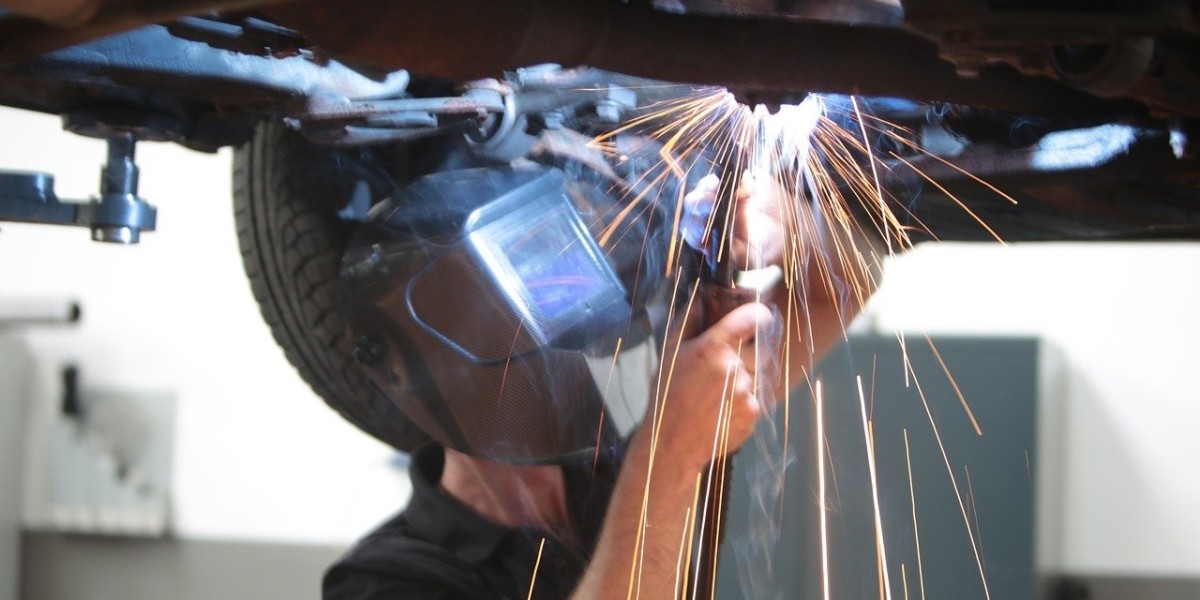Working as a mechanic can be an exciting and rewarding career, especially if you enjoy solving problems and working with your hands. However, it’s also a profession that comes with potential hazards if proper safety precautions are ignored. From handling sharp tools and heavy machinery to dealing with electrical systems and chemicals, the risks are real. To stay safe and efficient in the workshop, every mechanic—whether a beginner or professional—must prioritize safety above all. Here are some essential safety tips every car mechanic should follow to ensure a secure and productive working environment.
1. Always Wear Proper Safety Gear
Safety starts with wearing the right protective equipment. Mechanics are constantly exposed to sharp objects, hot engines, and toxic substances, which makes protective gear absolutely essential.
Wearing safety goggles prevents debris and chemicals from getting into your eyes when grinding or handling fluids. Gloves protect your hands from cuts, burns, and oil exposure, while steel-toe boots shield your feet from falling tools or heavy parts. You should also wear ear protection when working near loud engines or using pneumatic tools.
A good car mechanic always knows that dressing appropriately is the first line of defense against accidents. If you’re learning the trade, a car mechanic course will teach you the importance of using the right safety gear for each task, helping you develop safe habits early in your career.
2. Keep Your Workspace Clean and Organized
A cluttered workshop is one of the most common causes of workplace accidents. Slipping on oil spills or tripping over scattered tools can lead to serious injuries. Keeping your workspace organized not only reduces the risk of accidents but also helps you work faster and more efficiently.
Clean up oil, grease, or coolant spills immediately and use absorbent materials to keep the floor dry. Arrange tools in a systematic way so that they’re easy to access when needed. Regularly check cables, air hoses, and power cords to prevent tangling or fraying.
During professional training in a car mechanic course, students are taught workshop management and organizational discipline as part of their safety education. A tidy workspace means fewer distractions and more focus on the task at hand.
3. Use Tools and Equipment Properly
One of the most common mistakes made by inexperienced mechanics is misusing tools. Every tool is designed for a specific purpose, and using the wrong one can result in damage or injury. For instance, using a screwdriver as a pry bar or a wrench as a hammer may seem convenient at the moment, but it can lead to accidents or broken tools.
Before using any piece of equipment, take time to read the manual and understand how it operates. Always check for defects, such as cracked handles or loose fittings, before use. And never remove safety guards from machines like grinders or cutting tools.
Professional car mechanic training emphasizes the correct handling of tools, from torque wrenches to diagnostic scanners. When you understand how to use your equipment safely and effectively, your risk of injury decreases significantly.
4. Be Cautious Around Electrical Systems
Modern vehicles come with complex electrical and computer-controlled systems. Working on these components requires both knowledge and caution. Even a small mistake can result in electrical shock or short circuits.
Before starting any electrical work, disconnect the vehicle battery to cut off the power supply. Use insulated tools to prevent accidental electric contact, and avoid wearing metal jewelry while handling electrical systems.
Learning about electrical safety is an important part of a car mechanic course, where students are trained to diagnose, repair, and maintain electrical systems safely. Proper grounding, circuit understanding, and awareness of voltage levels are essential skills for anyone working with automotive electronics.
5. Practice Safe Lifting Techniques
Mechanics often lift heavy car parts, tires, and tools. Improper lifting can cause back injuries, muscle strains, or even long-term spine problems. Always bend your knees, not your waist, and use your legs to lift the weight.
If an object is too heavy, use a jack, lift, or ask for help instead of risking injury. When working under a raised car, always use safety stands and never rely solely on a hydraulic jack—it can fail without warning.
6. Stay Alert When Working With Moving Parts
Cars contain many moving components—belts, fans, and pulleys—that can cause serious harm if not handled carefully. Before working under the hood, make sure the engine is off and the keys are removed from the ignition.
Never wear loose clothing, jewelry, or accessories that could get caught in rotating parts. If you’re testing the engine while it’s running, stay clear of moving components and keep your hands and tools secure.
Being alert and focused at all times is a habit that comes with discipline and training. Students who complete a car mechanic course learn the importance of situational awareness to avoid preventable injuries when dealing with machinery in motion.
7. Handle Hazardous Chemicals With Care
Mechanics frequently work with hazardous substances like brake fluid, coolant, fuel, and cleaning solvents. These chemicals can cause burns, respiratory irritation, or poisoning if mishandled.
Always read labels before using any chemical product and follow the manufacturer’s safety instructions. Use gloves and masks when necessary, and work in a well-ventilated area to avoid inhaling fumes. Dispose of waste materials properly in designated containers to prevent environmental harm.
8. Take Breaks and Avoid Fatigue
Fatigue is a hidden danger in the workshop. Long hours of standing, bending, or lifting can lead to physical exhaustion, reducing your concentration and increasing the risk of accidents.
Take short breaks between tasks to rest and hydrate. Stretching your muscles can help relieve tension and prevent stiffness. Remember, being alert and energized is part of staying safe.
Conclusion
Safety in the automotive workshop isn’t just about following rules—it’s about creating habits that protect you and those around you. Wearing the right gear, maintaining an organized workspace, handling tools correctly, and staying alert are essential steps to becoming a responsible and skilled mechanic.





